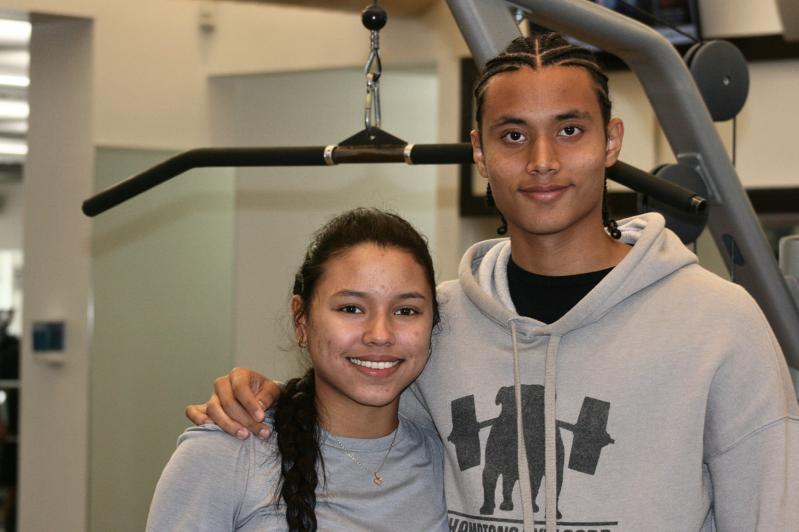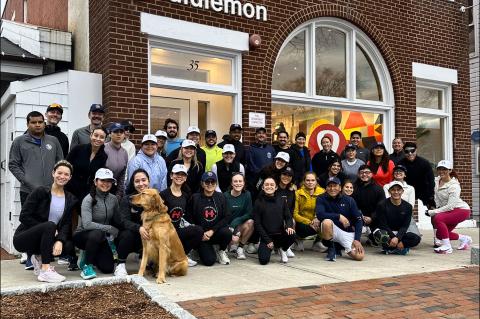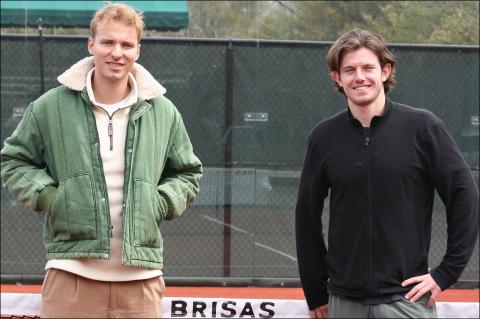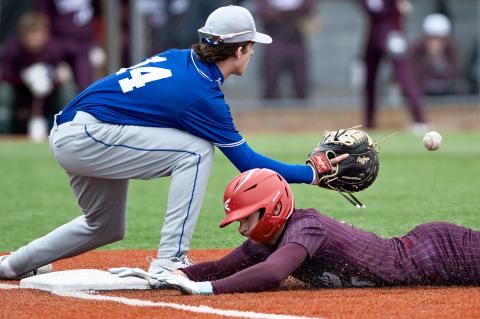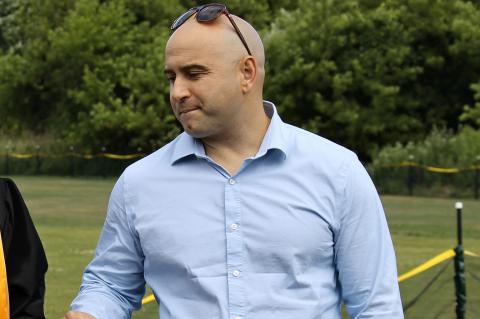“Do you want to know what her day is like?” Kevin McConville, who coaches East Hampton High’s girls and boys tennis teams, said following a recent practice session at the East Hampton Indoor Tennis Club with his number-one singles player, Juliana Barahona.
“She goes to school until 3, hits with me from 3 to 4:45, and then goes to work at the Sag Harbor Gym from 5 to 10.”
Juliana, a Pierson High School junior whose game has improved greatly of late, nodded in agreement.
“And,” said McConville, “she never gets tired.”
That’s the same routine — except the sport in his case is soccer — being followed by Juliana’s brother, Mateo, a Pierson senior who three nights a week practices with the Smithtown Hurricanes and plays in metro-area showcase tournaments with that travel team on weekends.
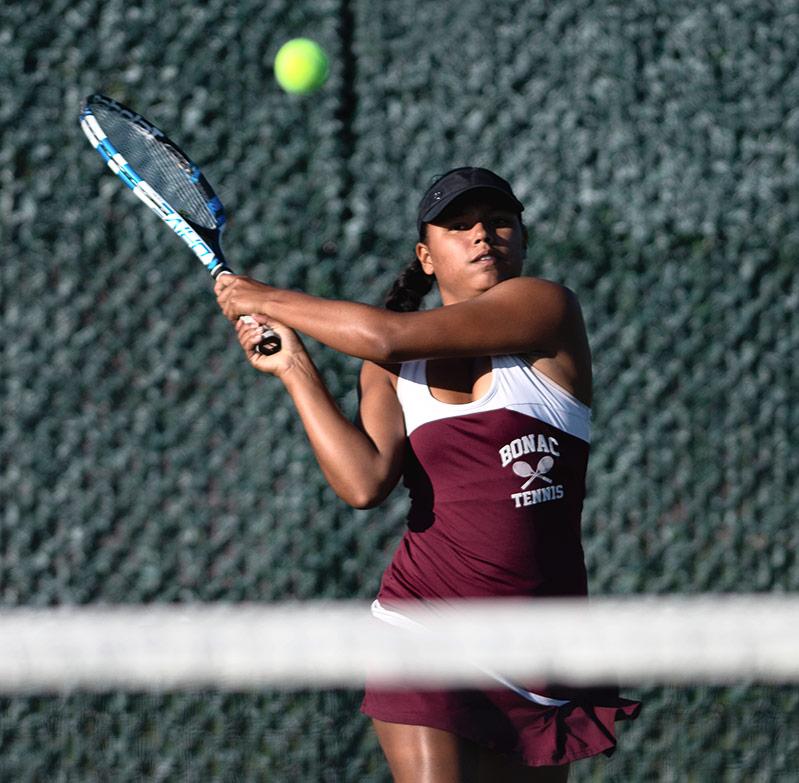
Mateo, a native like his sister, of Bugalagrande, Colombia, a valley town near Cali, hopes to win a full college athletic scholarship. He was offered a half-scholarship recently but, for financial reasons, had to turn it down. The good news is that more than a dozen college coaches, having seen on the internet a video of him playing, have indicated interest.
Juliana too wants to earn an athletic scholarship, and to bolster her case, McConville, who has been coaching her privately since the end of the girls team’s fall season, will see to it that she plays in United States Tennis Association 18s tournaments up the Island.
Mateo and Juliana, speaking very little English, arrived to live with their father, Julian, in Sag Harbor in 2016, “a week before the theater burned down,” they said.
Pierson’s teachers had been very helpful when it came to learning the language — “they help the Latin people very much,” Juliana said during a conversation at the Sag Harbor Gym Sunday.
“They gave us help,” said Mateo, “but we pretty much helped ourselves.”
“You have to speak with the American people if you live here,” she said. No, she added, in answer to a question, they were not shy, not afraid to make mistakes. “You can’t be shy,” Juliana said. “You won’t learn anything.”
“Kevin is a very good coach,” she said, when asked. “He’s always helped me . . . he saw in me . . . ‘potential,’ as you say. He saw that I really wanted it. So I work for it. . . . He’s making me do things that I didn’t do, like come to the net, hit volleys, approach shots down the line. . . .”
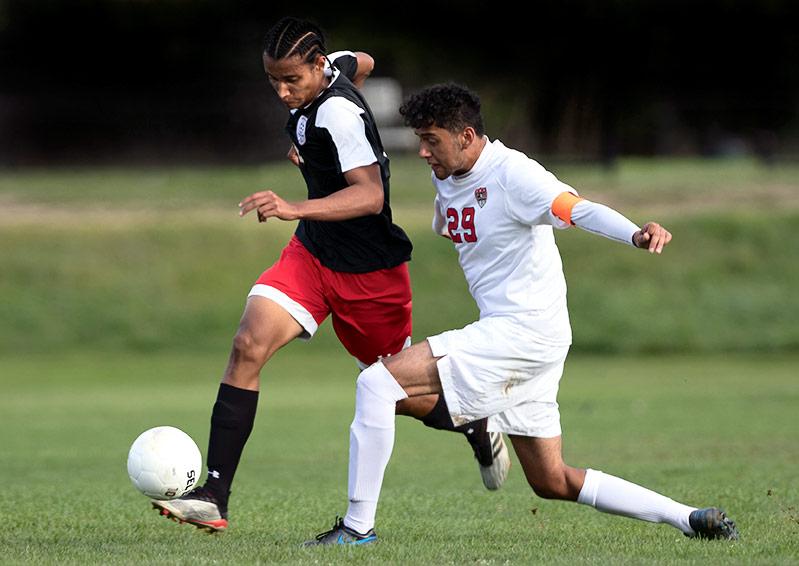
When this writer ventured following the aforementioned E.H.I.T. practice session that Juliana had formerly been “a defensive player,” McConville, a champion of hers since the day she joined East Hampton’s team as a sophomore — even though they hadn’t been able to communicate at first, he said — took issue: “While she’s been a baseliner, she’s never played defensively, she’s always been an aggressive baseliner, but she’s learning a complete game now. We work on developing an all-court game every day. In the long term, she will be able to do everything. . . . I’ve seen a huge improvement. She’s playing so much better than she used to.”
Though it was necessary, the Hampton Racquet Club’s head pro said, that she get a ranking, and to do that she needed to play in 18s tournaments, “in East Quogue, Glen Head, Glen Cove, Syosset. . . . She only played in three 16s tournaments last year. She’s got to be able to play when the pressure’s on, when people are watching.”
“At the moment, she could play one or two on my boys team.”
The Barahonas work the front desk at the Sag Harbor Gym — Juliana on Tuesdays and Thursdays, Mateo on Wednesdays, Fridays, and Sundays, though sometimes they work together — and often in their off-hours they work out there.
Both of them love the sports they play, love the competition, and are working exceedingly hard to improve. “We focus,” Mateo said, “on resistance and agility training so we can be an athlete who can do anything.”
In soccer, which he’s played since an early age (their father and his brother, Carlos, who also lives in Sag Harbor, played professionally in Colombia), Mateo, an attacking midfielder, said, “I have to be smarter, for I’m not that fast — I have regular speed. So, when the moment comes, I have to be ready. What I want to do is make a difference so my team can win. . . . I don’t like to hold the ball, I like to pass, pass and go, switch the ball . . . whatever is most effective.” And he knew, he said in reply to a question, when to pull the trigger.
One could get faster, he added in answer to another question. To that end he mixes in long-distance with interval work on his own at Sag Harbor’s Mashashimuet Park and, as aforesaid, practices with the Smithtown Hurricanes three nights a week.
Asked about tennis’s mental demands, Juliana agreed that it was a big part of it, perhaps as much as 90 percent, though she thought that was true for soccer too, for any sport really.
Her mental game was good, she said with a smile. “I try to keep saying to myself, ‘You can do it,’ ‘Be patient,’ ‘One point at a time. . . .’ ”

